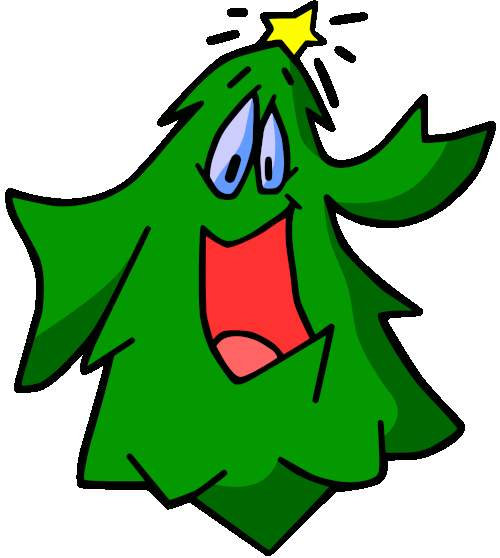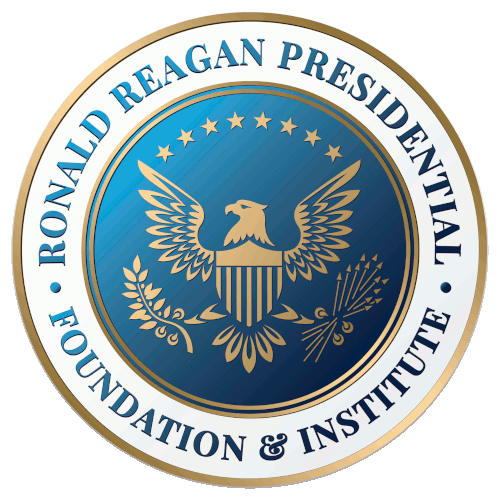IRISH CHRISTMAS


https://www.google.com/maps/place/Ballyporeen,+Co.+Tipperary,+Ireland

| HOW TO SAY MERRY CHRISTMAS: | |
|---|---|
| In Irish | Nollaig Shona |
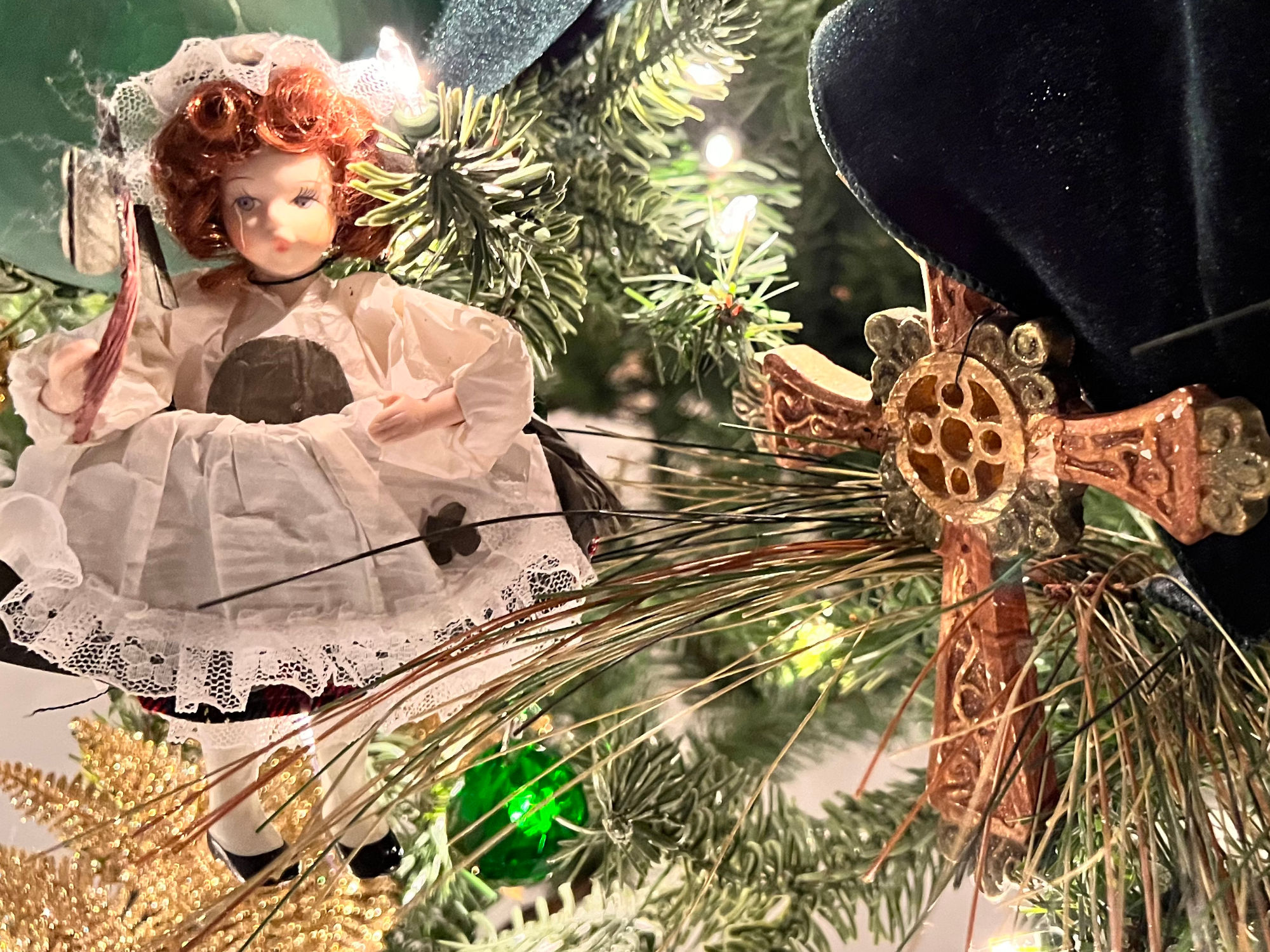
WHYCHRISTMAS.COMChristmas in Ireland
In Ireland, people celebrate Christmas in much the same way as people in the UK and the USA, but they also have many of their own Christmas traditions and customs.Christmas for Irish people, who are Catholics, lasts from Christmas Eve to the feast of Epiphany on January 6th, which some Irish people call 'Little Christmas'. Epiphany isn't now widely celebrated in Ireland.
- In Ireland, many people will put up their decorations, including the Christmas tree, on December 8th, which is the Feast of the Immaculate Conception.
- There is an old tradition that in some Irish houses (although now not many), people put a tall, thick candle on the sill of the largest window after sunset on Christmas Eve. The candle is left to burn all night and represents a welcoming light for Mary and Joseph.
- In Irish (or Gaelic) Christmas is 'Nollaig', Santa Claus is known as 'San Nioclas' (Saint Nicholas) or 'Daidi na Nollag' (Father Christmas) and Happy/Merry Christmas is 'Nollaig Shona Dhuit'. Happy/Merry Christmas in lots more languages.
- Children hope that Santa will visit on Christmas Eve and leave presents for them.
- The day after Christmas Day, St. Stephen's Day (known as Boxing Day in the UK and some other countries), is also very important in Ireland. Like in the UK, football matches and horse racing meetings are traditionally held on St. Stephen's Day.
- One very old tradition is the Wren Boys Procession that takes place on St. Stephen's Day. This goes back to ancient times when a real wren was killed and carried around in a holly bush. Some processions still take place, but no wren is hunted or used.
Young men and women dress up in home made costumes and go from house to house carrying a long pole with a holly bush tied to its top and singing a rhyme about a wren bird. Sometimes they are accompanied of violins, accordions, harmonicas and horns. The rhyme that is often used is:
The wren, the wren, the king of all birds
On St. Stephen's day was caught in the furze.People also ask for money 'for the starving wren'!
The wren is one of the smallest birds in the UK and Ireland, but has a very loud song and is sometimes called the 'king of all birds'. This is because of the legend of a little wren who rode on the top of an eagle's head and boasted he had 'flown higher than an eagle'. Wren's were hunted for many years throughout Europe in medieval times.
The Wren Boys Procession mostly died out in the early 20th century, although it still takes place in some towns including Dingle, in Country Kerry in the South West of Ireland.
- The Feast of the Epiphany (January 6th) was also celebrated in some towns in Ireland as 'Nollaig na mBean' or Women's Christmas. Traditionally the women got the day off and the men do the housework and cooking! The women met in each other's homes to sew and chat. Although it's mostly died out, some women still like to get together on the Sunday nearest Epiphany, to have tea and cakes, to gossip and to enjoy each other's company!
- Traditional, historic, Christmas food in Ireland include a round cake, full of caraway seeds. One is traditionally made for each person in the house. Now it's more common to have a Christmas Cake like those in the UK, a rich fruit cake covered with marzipan and decorated with icing. And an addition to turkey for Christmas dinner, sometimes spiced beef (spiced over several days, cooked, and then pressed) is eaten. This can be served hot or cold. Dessert is commonly a Christmas Pudding.
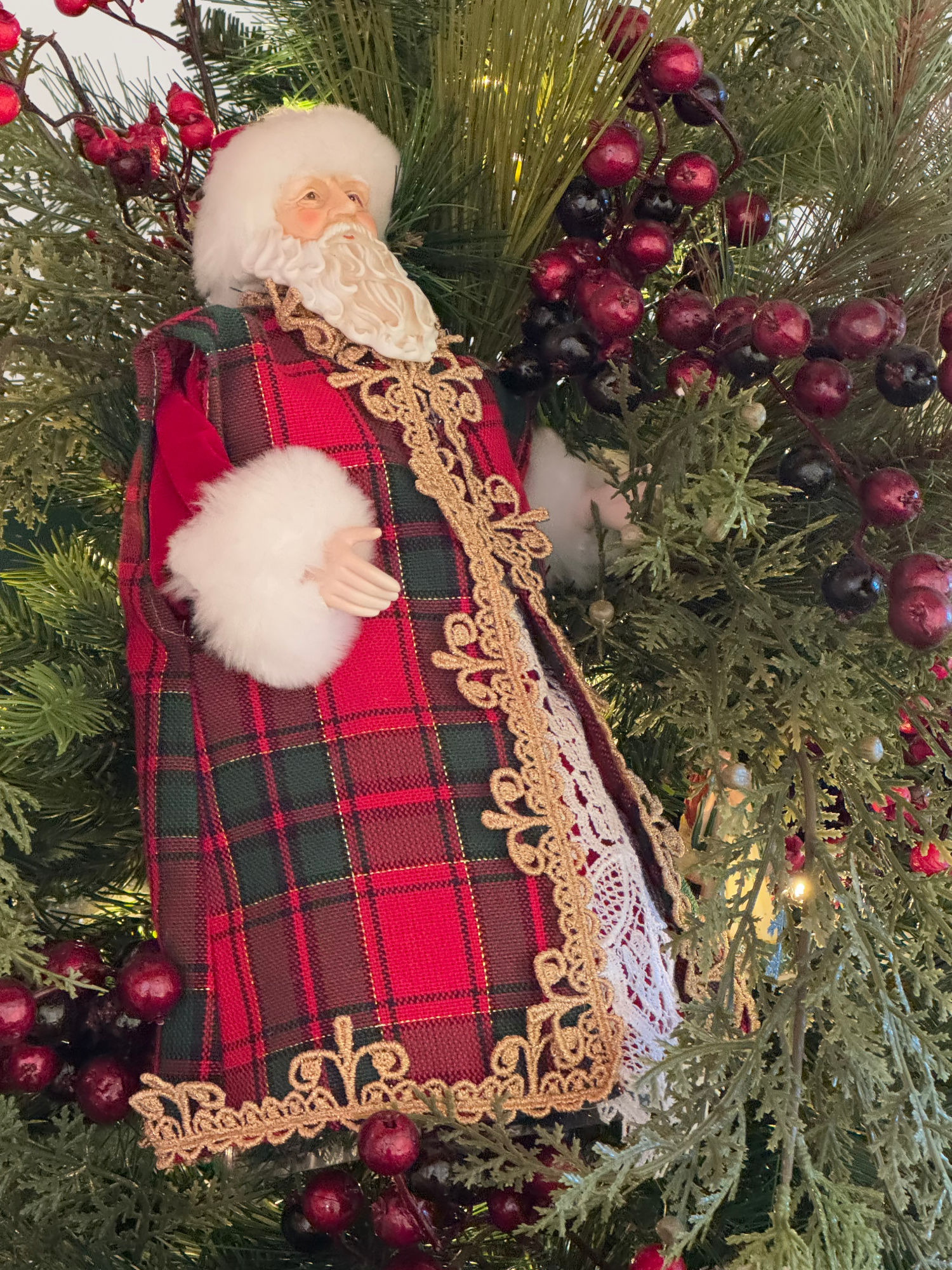
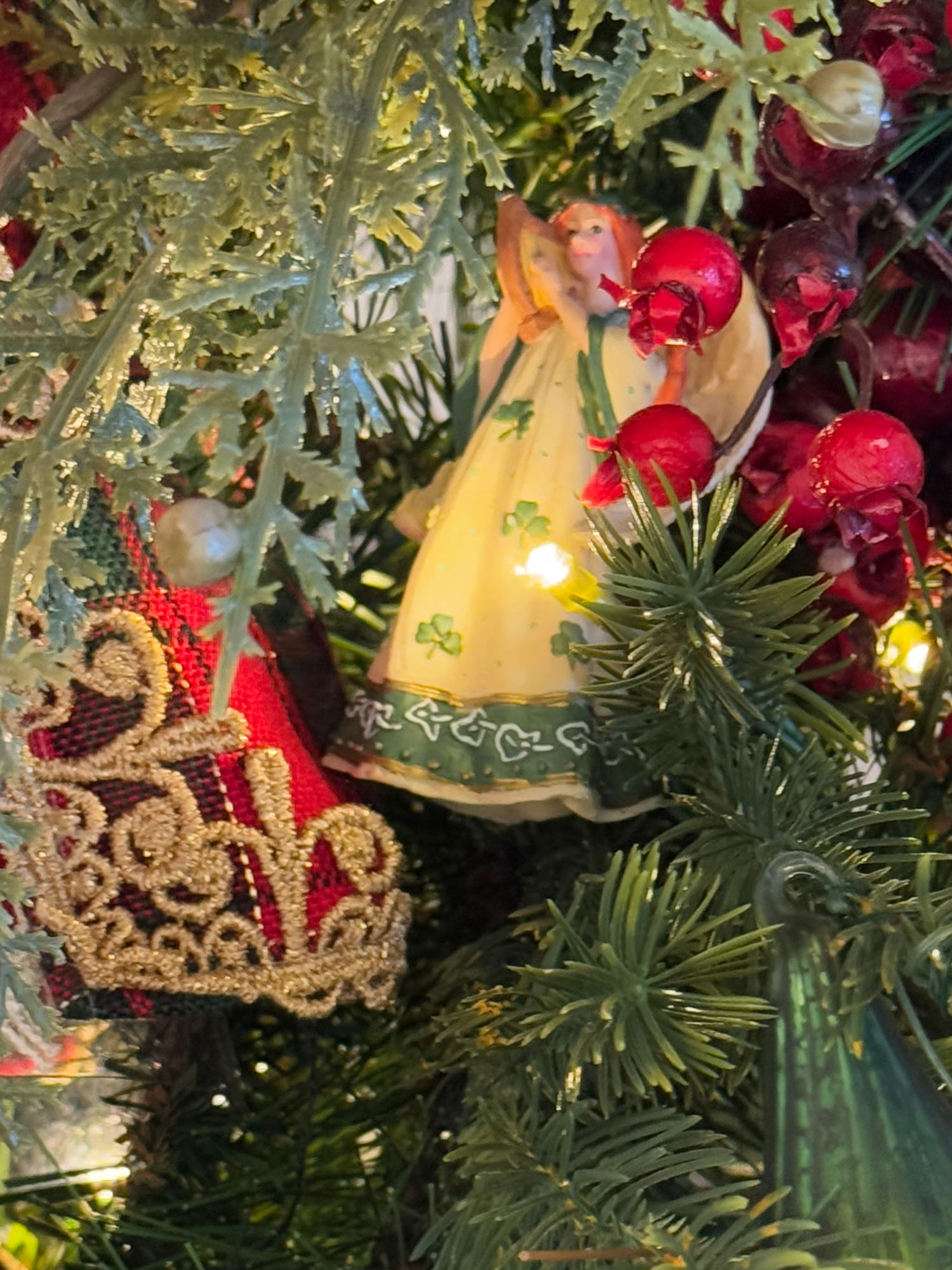
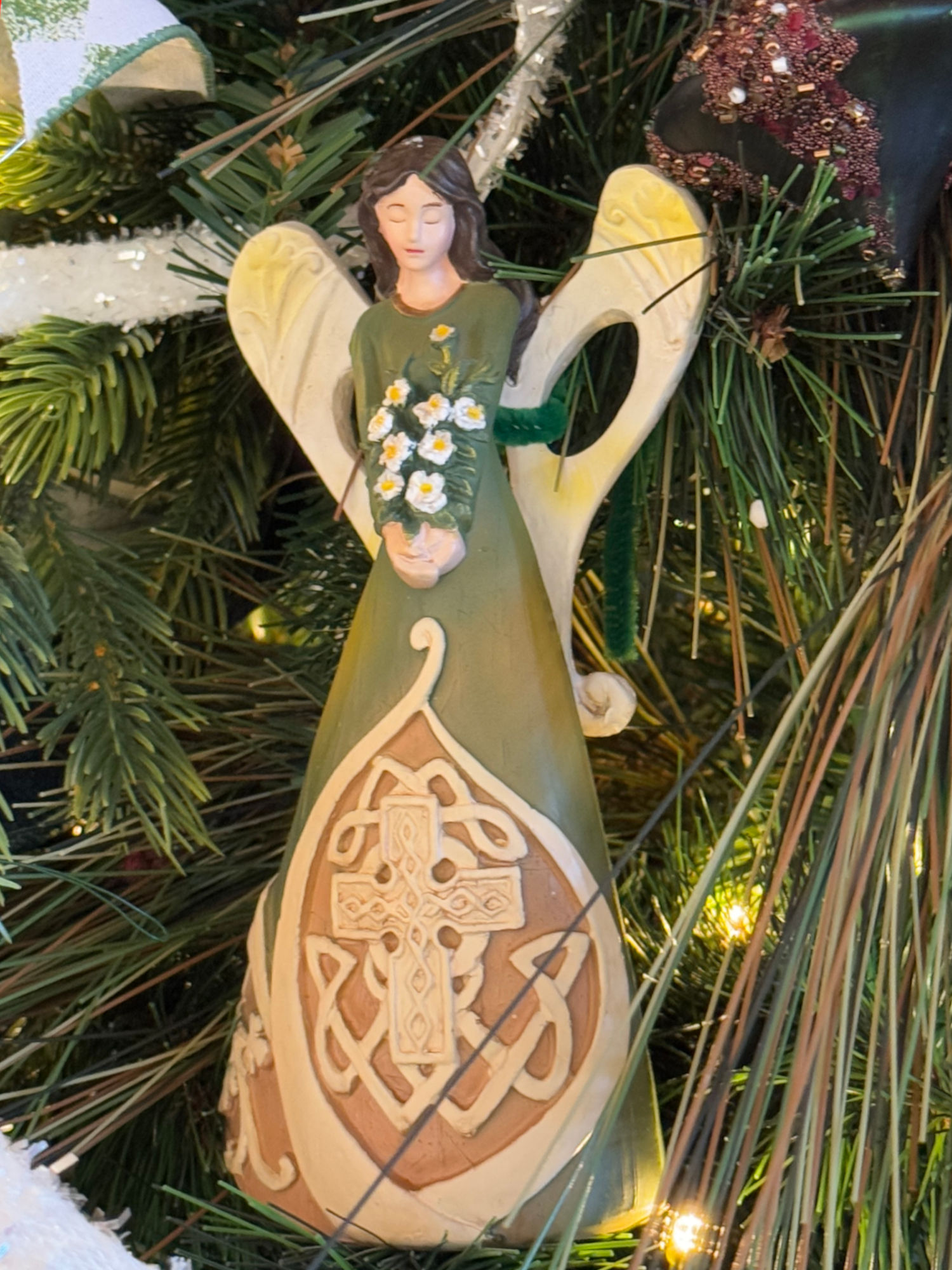
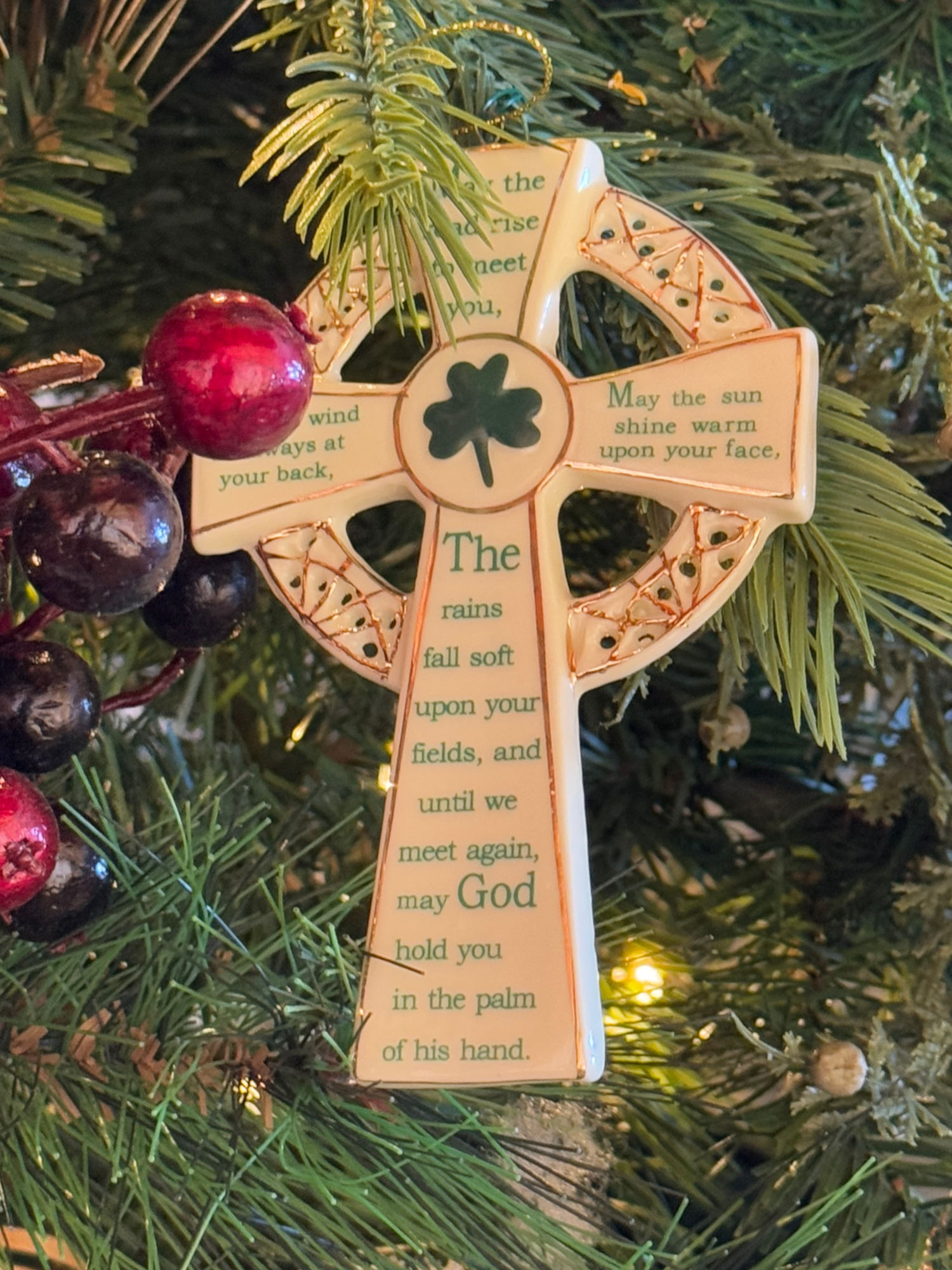
CULTURE TRIPHow The Irish Influenced Christmas
You may not know it, but Ireland's contribution to the festival of Christmas goes far beyond the much-loved singalong 'Fairytale of New York'. In much the same way that the modern interpretation of Halloween descended from the Celtic pagan celebration of Samhain, several important pre-Christian Irish traditions have been incorporated into the winter holiday season.Prior to the introduction of Christianity during the early 5th century, Ireland was home to the Celts, a pagan civilization which worshiped many gods and goddesses. Animism – the belief that all elements in nature contain a spirit – was an important part of Irish Celtic culture. Their lives were governed by nature and the seasons, with four annual festivals marking the beginning of spring (Imbolc) and summer (Bealtaine orMay Day), and the beginning (Lughnasadh) and end of the harvest season (Samhain).
The yearly solstices and equinoxes were also scared days in the Celtic calendar, as is evident through structures like Newgrange, County Meath – a prehistoric passage tomb built to align with the winter solstice sunrise. On that day every year, the tomb's chamber fills with light as the sun comes up.
As the Roman Catholic faith prospered and early Irish monasteries grew in influence, many significant pagan events were simply adapted into new religious feast days. For example, the spring festival of Imbolc, originally associated with the goddess Brigid, became Saint Brigid's day. It is widely theorised that the date of Christmas may have been chosen for its proximity to the winter solstice date in the same way. December 25th was also a feast day in pagan Rome, a celebration of the sun god Sol Invictus.
Holly, Wreaths, & Mistletoe
Ancient Irish traditions now recognizable in the ways Christmas is celebrated in the UK and America include decorating doors with holly and ivy wreaths, which were hung outside the house in Celtic times to welcome visitors and ward off evil spirits, and the ritual of hanging mistletoe, which derives from Celtic priests or druids. The druids believed this plant had healing powers and granted fertility, so in winter, they performed a ceremony which involved cutting down mistletoe, before sacrificing two white bulls.Tree Decorating, Yuletide Candles
It was pagans in Northern Europe who first began decorating a fir tree for the winter solstice, to herald the coming of spring. The pre-Christian tradition of lighting a yuletide candle in the window to guide ancestral spirits was also widespread in Ireland, later interpreted to be an invitation to Mary and Joseph to visit the house. During the time of the Penal Laws in the country, when Catholic priests were prohibited from saying mass, the candles were used as a code to let priests know they were welcome.The influence of Celtic winter celebrations on the Christmas festival is clear. As the first site of major European Christianisation, Ireland played an important role in blending the existing cultural traditions of that time with newfound monotheism. Irish missionaries then spread these new traditions to Britain and Continental Europe. The adoption of pagan rituals into the Christian religious event of Christmas was so successful that many today aren't even aware that when they hang a holly wreath, they are engaging in a custom that dates all the way back to ancient Irish civilization.

WORLD HOLIDAY TRADITIONSChristmas in Ireland
It's celebrated much the same as their neighbors throughout the United Kingdom and the Western world, but like the others they have their fair share of unique holiday traditions.People decorate their homes, businesses, and towns with mistletoe, boughs of holly, colorful lights and ribbons, and the traditional Christmas tree. The practice of placing a ring of holly, or a wreath, on the front door originated in Ireland. Holly is one of the main plants that flourishes at Christmas time in Ireland, so it's common to see holly-centric decorations around.
Advent Calendars are popular among children, counting down the days until Christmas. Each day, a little door is opened in the calendar to reveal a small trinket or treat.
Around this time of year, many give a small gift of money to those who perform regular services, such as the postman, to show appreciation for their year-long service.
In Dublin, it's a common tradition for families to sit together and read "The Dead", an Irish version of A Christmas Carol from James Joyce's "The Dubliners."
Another tradition involves leaving a candle burning all night on the sill of the largest window in the house, to represent welcoming Joseph and Mary as they wandered in search of lodgings.
Ireland has a large population of Roman Catholics, and as such the people revere the Virgin Mary. There are certain Christmas traditions involving girls named Mary, which at one point was the most popular female name in the nation; the candle in the window could only be lit and extinguished by a girl named Mary, and the removal of decorations in January could only begin after a visit from a Mary.
The Christmas dinner is often the largest dinner of the year. Traditional Christmas dishes in Ireland include turkey, chicken, goose, and spiced beef, with sides dishes of stuffing, gravy, and potatoes. For dessert, round cakes filled with caraway seeds, fruit cakes, and Christmas pudding are popular. Once the dinner is finished, the table is set again with bread, milk, and a welcoming candle as a sign of hospitality for passersby. After the Christmas dinner, Ireland's Roman Catholic congregation attends a midnight mass on Christmas Eve. Each attendee receives a candle to light.
Children leave out sacks to be filled with toys by Santa Claus, and families gather around their Christmas tree on Christmas Day to open presents and spend the day together. Another Christmas Day tradition is the Christmas Day swim, wherein people around the country go swimming in the sea wearing nothing but a swimsuit and a Santa hat.
The day after Christmas, December 26th, is St. Stephen's Day; Generally a day to visit family and friends, many sporting matches are held on this day as well, including football and horse-racing (as St. Stephen is the patron saint of horses.)
The Wren Boys Procession, or Wren Day, is an old tradition that also takes place on St. Stephen's Day. The precise origin of this event is uncertain, with several tales attributed to it. But many involve vilifying the wren bird as a traitor, or as "The Devil's Bird." During this procession, the "wren boys" carry a pole with a holly bush tied to its top from house to house, singing carols for treats and change. In ancient times, an actual wren would be hunted and placed atop the pole, but now a plastic or rubber wren is used instead.
Christmas decorations are usually taken down on Little Christmas, or January 6th, and it's considered bad luck to remove the decorations before this date. The Feast of Epiphany also takes place on this day, and women are encouraged to take a day off for themselves to relax, while men do all the housework in their place.

In Ireland, Little Christmas Is a Day for Women to Celebrate the End of the Holiday Season-at the Nearest Pub
Mental FlossNollaig na mBan
In Ireland, every January 6 marks Nollaig na mBan (roughly pronounced "Null-ug na Mon"), which translates from Gaelic as "Women's Christmas." The idea is that, due to women having done all the work of the holiday season, once it's over, they get to put their feet up.January 6 marks the end of the festive season in a lot of Christian countries-the last of the Twelve Days of Christmas. It is known as the Feast of the Epiphany, commemorating the Magi visiting the baby Jesus and acknowledging him as the son of God. In England, it's known as Twelfth Night, while in Spanish-speaking countries it is Dia de Los Reyes (literally "Kings' Day," usually translated as Three Kings' Day). Among other things, it marks the day by which Christmas decorations need to be taken down.
On Nollaig na mBan - more so in rural parts of Ireland than in larger towns-this also historically involved men taking on household duties for the day, looking after children and cooking meals while women headed to the pub, usually off-limits, to down a few pints of Guinness.
While most of the more obscure customs of Nollaig na mBan - such as the idea that farm animals briefly gained the ability to speak, but bad luck would befall anyone who heard them, or that rubbing a herring's tail on a child's eyes would boost their immunity for the year-have died out, ladies-only promotions in restaurants and bars remain common on January 6 even today.
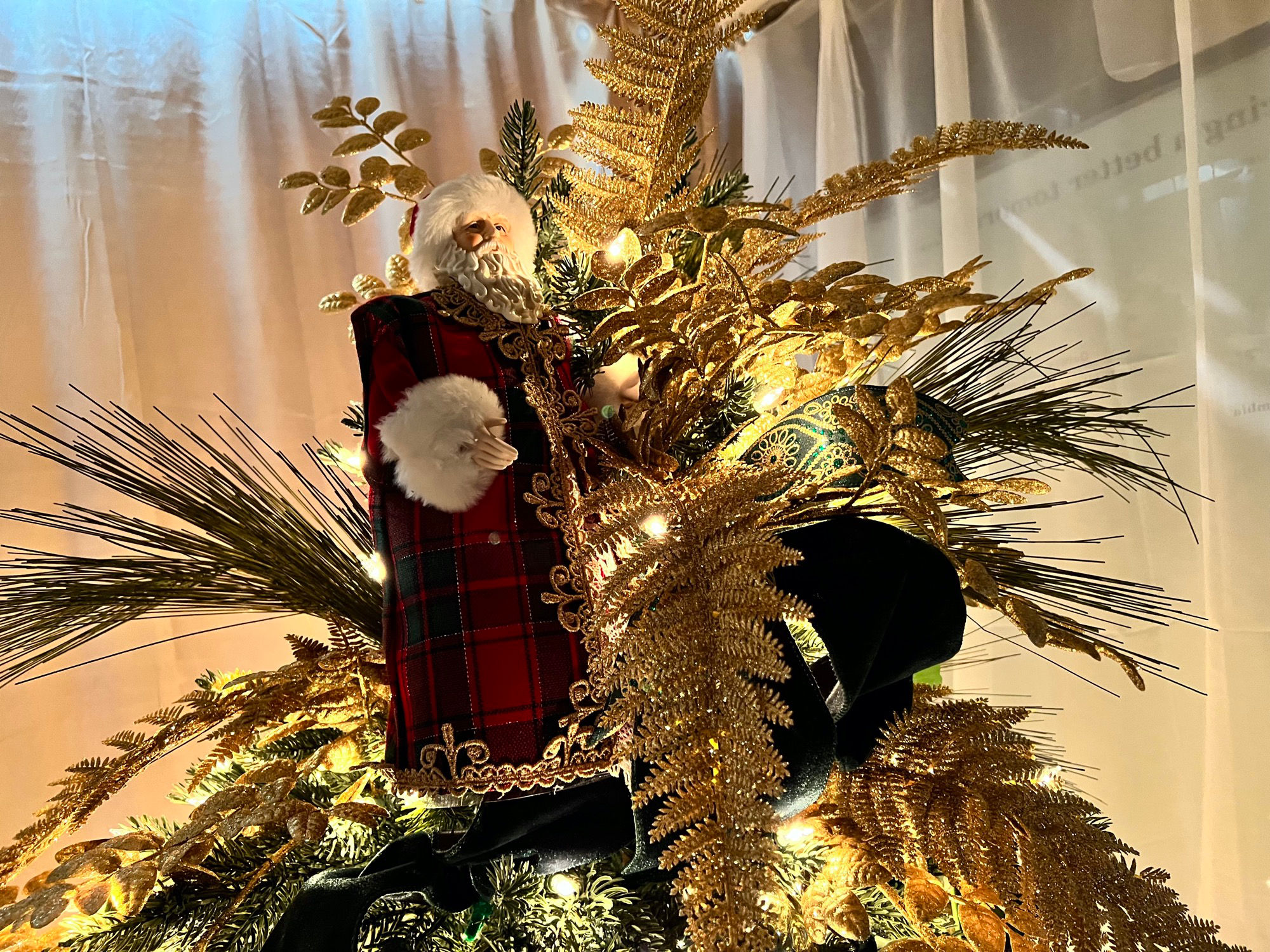
CULTURE TRIPIrish Christmas Traditions
Ireland may not be guaranteed a snowfall like more northerly European locations, but what it lacks in snow, it more than makes up for in enthusiasm. Festive celebrations are so eagerly anticipated that they are known to kick in shortly after Halloween, with cheerful decorations, lit-up trees and seasonal markets popping up from November onwards. Here are some distinctly local Christmas traditions in which the Irish partake.The Late Late Toy Show
Watching the annual Christmas edition of the national chat show known as The Late Late has become a time-honoured tradition in Irish households. Taking place every year since 1975, The Late Late Toy Show is still a vital part of the season – in 2015 it was the national public service broadcaster of Ireland's most-watched program, taking in more than a million viewers. During the live special show – also streamed worldwide online for nostalgic members of the Irish diaspora – the most popular toys of that year are reviewed by children of all ages, along with musical performances. So popular is this annual TV event that the Irish clothing retailer Penneys has even released special Late Late Toy Show jumpers and pyjama sets.A Christmas Pub Crawl
Living up to the drunken Irish stereotype, a recent Christmas tradition that has developed in Ireland is the 12 Pubs of Christmas pub crawl. Involving Christmas-themed outfits, overly complicated rules and a route incorporating a chain of different pubs in your area, the 12 Pubs has been adopted into the Irish Christmas canon with relish. Taking place on different dates in locations all across the country, some people attend more than one of these, with Irish publications creating 12 Pubs survival guides.Christmas Day Swims For Charity
There are those who daren't even brave the frigid Irish waters during the summer months, yet every Christmas, a certain number of courageous individuals flock to beaches and piers around Ireland and leap in, no matter what the temperature. Christmas Day swims to raise funds for charity have been taking place in Ireland for decades, from places like the famous Forty Foot promontory in Dublin to the Kerry village of Fenit. Every Christmas morning, crowds gather to participate in or just watch their local swim before heading home to warm up by the fire.Leaving A Guinness Out For Santa
A second alcohol-themed Christmas tradition in Ireland is the leaving out a Guinness for Santa Claus. While Americans are known to leave cookies and milk near the tree before bed on Christmas Eve, some Irish families put out a glass of Ireland's most famous alcoholic beverage to make Santa's busy night of present deliveries easier. Just another example of the kind of cead mile failte (a hundred thousand welcomes)hospitality for which the Irish are known.The Wren Boys Procession
As if it wasn't enough for the day after Christmas to have one name in Northern Ireland (Boxing Day) and another in the south (St. Stephen's Day), in some locales, it's known by a third title: Wren Day. Centered around the idea of 'hunting' for a fake wren, the exact origins of the festival aren't known, but one theory is that it was one of many Celtic traditions passed down to modern Ireland. During a Wren's Day Parade, people dress in straw suits and sing songs – a tradition which is still a highlight of the Christmas calendar in Dingle, County Kerry.Nollaig na mBan, or Little Christmas
The January 6th end-of-Christmas Epiphany celebration is known in Ireland as either Little Christmas or Nollaig na mBan, meaning Women's Christmas. The latter derives from an old Irish tradition that the men of the household were responsible for all the chores and duties that day, giving women and girls a rest day. In Ireland, this is also the day when Christmas decorations are traditionally meant to be taken down.The Wexford Carol
Though it isn't sung by many people regularly, the Irish are proud of the fact that one of the oldest surviving religious Christmas carols in the European tradition, 'The Wexford Carol', originated in Enniscorthy in the 12th century. This song about the nativity story was once only ever sung by men, but 20th-century female performers such as Julie Andrews thankfully broke that limiting custom. In 2014, the carol was given a revival, when Caitriona O'Leary sang it with Tom Jones and others on her album The Wexford Carols.Midnight Mass On Christmas Eve
Although Catholicism isn't the cultural force it once was in Ireland, attending Midnight Mass on Christmas Eve is still relatively common, especially in the countryside. According to the Roman Catholic tradition, mass can be celebrated three times on Christmas Day, beginning with a service at midnight the night before. Mindful of preparations needing to be made for the following day – and possibly due to falling numbers – some parishes have moved their midnight mass up to as early as 9pm.

WIKIPEDIAChristmas in Ireland
The annual festival which marks the Christian celebration of the birth of Jesus and its related observances, but also incorporates some pre-Christian customs. These customs range from the traditional food and drink consumed, decorations and rituals, as well as more modern phenomena such as the Christmas day swim and annual television and radio events. The modern Irish Christmas has become more similar to that of the British and American festive period, with emphasis on gift buying and parties.Historically, for Irish Catholics, the festive period began on 8 December, the Feast of the Immaculate Conception, with many putting up their decorations and Christmas trees on that day, and runs through until 6 January, or Little Christmas. In modern times, The Late Late Toy Show, on the last Friday of November is viewed as the beginning of the Christmas festive period.
The greeting for "Happy Christmas" in Irish is Nollaig Shona Duit or Nollaig Shona Daoibh. The literal translation of this is "Happy Christmas to you".
Ireland is a predominantly Christian country and Christmas plays an important role in religious aspects of Irish life, taking the place of the pre-Christian festival on the winter solstice. The earliest account of the Christian celebration of Christmas in Ireland are from 1171, when the excommunicated King Henry II spent Christmas in Dublin. The next account of a Dublin Christmas is from 1458 and focuses on religious dramas known as Miracle Plays.
There have been traditionally large attendances at religious services for Christmas Day and Christmas Eve, with Midnight Mass a popular choice for Roman Catholics. There was also an early morning Christmas Day mass, that was believed to confer indulgences worth 20 masses. Even those who did not habitually attend mass, were generally expected to do on Christmas. It is also a time for remembering the dead in Ireland with prayers being offered for deceased at Mass. It is traditional to decorate graves at Christmas with a wreath made of holly, ivy, yew, or other evergreens. It was believed that if anyone died in the period between Christmas Day and Little Christmas on 6 January, they would enter heaven immediately. Christmas day was traditionally referred to as "Big Christmas" or Nollaig Mhor to differentiate it from Little Christmas. It was traditional in parts of Ulster for men to partake in an event called a "join", where they clubbed together to pay for food and drink, celebrating at any time in the 10 days of Christmas.

CHEF'S PENCILIrish Christmas Foods
Christmas is big in Ireland – just as it is in the rest of the British Isles. But as the major religious festival, along with Easter, of course, it likely retains more heavenly sentiment than elsewhere as Ireland remains a very religious country. According to a 2016 survey, over 78% of people in Ireland consider themselves Catholic and 40% of them attend church once a week.Christmas is a religious festival, Ireland is a religious country, so Christmas is a big deal – some philosophers might argue with that reasoning, might right now, who cares – it's Christmas time!
It is indeed, and Irish households will be "getting in the Christmas", building up their stocks and supplies for the festive period.
So, what might you expect to find on a typical Irish Xmas dinner table?
The Starter
Many homes will usher in the yuletide feast with a starter. And being an island country with a flourishing seafood industry, the starter will often be of salmon or prawns. Now, the prawn cocktail may have had its heyday, but it is a popular retro starter for Xmas.The Main Dish
As in the rest of the British Isles, turkey is the firm favorite for Christmas dinner. Roasted, of course, and stuffed with potato stuffing, or bread and potato stuffing... or potato and sausage stuffing. But all that turkey and stuffing needs covering with gravy, made with the juices of the bird and particularly tasty if the bird is cooked in Guinness. But, again like the rest of the region, it is a pretty recent tradition.Before the roast turkey took hold, the center dish would be spiced beef – and some are bringing back that tradition as it sounds absolutely fabulous.
- Three kilograms of topside rubbed with brown sugar and put to rest in the fridge for two days. Then rubbed with a mixture of black peppercorns and juniper and allspice berries crushed in a pestle and mortar and mixed with ground cloves, salt, and saltpeter. After another week of resting in the fridge, the meat is cooked very slowly in the oven for about 5 hours. Left to rest for another 3 hours, the result is an exceptionally chilled out lump of deliciously spicey, lusciously juicy beef.
But I digress, as it isn't the main dish anymore. That honor goes to roast turkey and, because one bird won't go round the entire family, an honest to goodness beautifully honey-glazed, clove-studded ham will also do.
The Christmas Sides
That stuffing theme is carried over into the sides as potatoes figure quite a bit. The roast turkey and ham will come with at least two potato sides – mashed and roast – but others suggest four different potato dishes. Potato gratin is a favorite – layers of sliced potatoes and grated cheddar cheese doused with onion and heavy cream sauce and baked – crunchy and soft at the same time! Other veggies do get a look in. Brussels sprouts, celery, carrots, peas, and broccoli are popular accompaniments – a selection of or all together.Irish Christmas Desserts
A good old plum pudding is a favorite on the Irish Christmas table, with brandy butter or sherry sauce. But for those not so keen on the rich, thick fruit pudding, a sherry trifle is often an alternative – trifle sponges soaked in sherry along with lots of fruit, jelly, and cream, it is no less rich but it is more refreshing. And something more refreshing is probably a good choice, as once the main meal is over, there is Christmas cake or mince pies to be had.Afters
The Irish Xmas dinner is a delectable feast involving long hours of good food, good conversation, and plenty of reveling. But it doesn't stop there as the evening continues with a moist and fruity Christmas cake and rich and crumbly mince pies washed down with plenty of Baileys Cream, whiskey, or Guinness. Nollaig Shona Dhuit to you all! (Best try saying that before the Irish whiskey.)


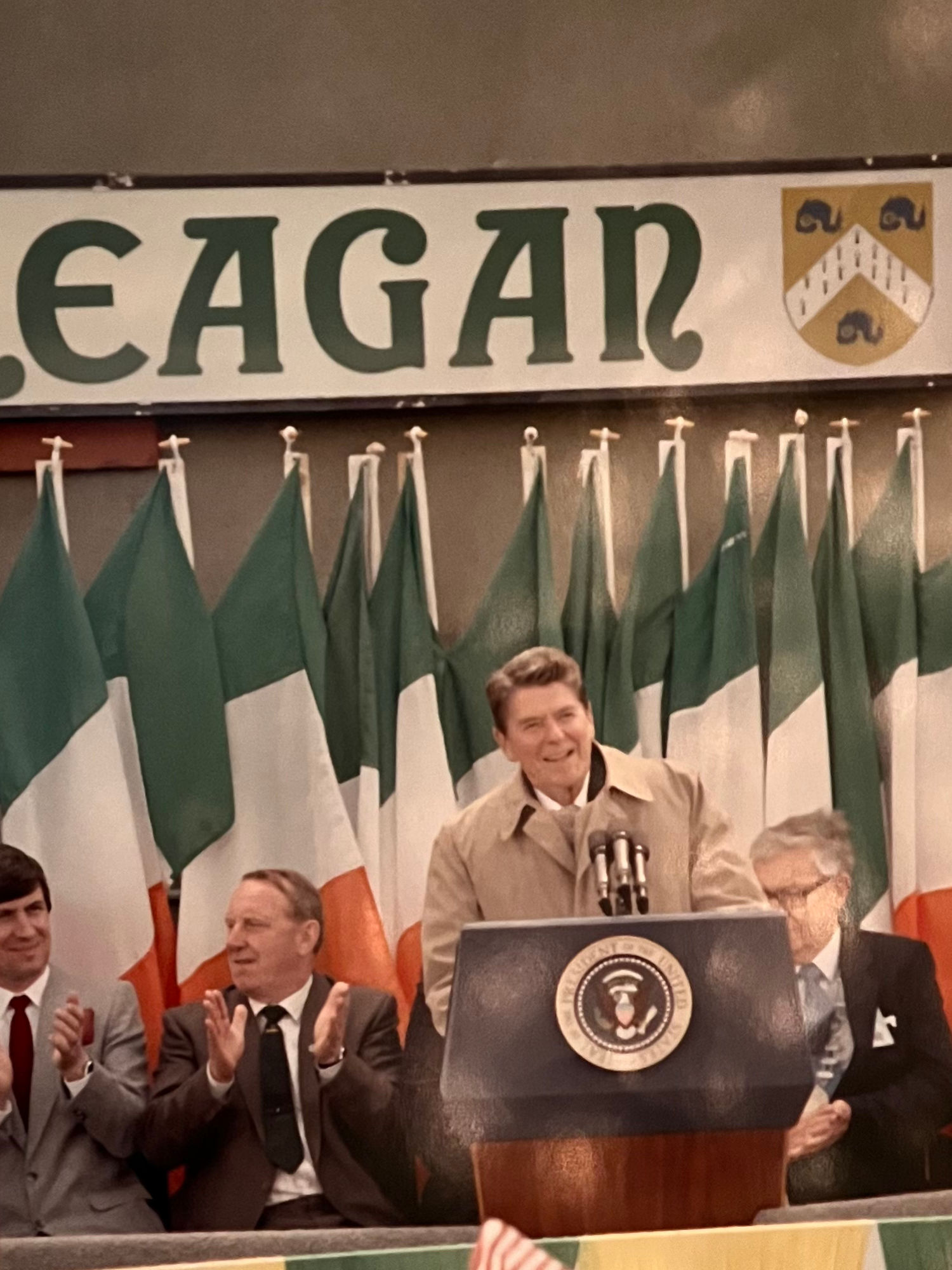
In Ireland, President Reagan met with President Hillery and Prime Minister FitzGerald; visited his ancestral home, and addressed Parliament. Village Square ceremony in Ballyporeen.
Reagan's Daily DiarySunday, June 3, 1984
This was the day. We helicoptered to Ballyporeen in Co. Tipperary. This was the home of my great grandather who left there for America. After all the greeting ceremonies I went with Father Condon to see old Father Murphy keeper of the baptismal records. There I saw the hand written entry of Michael Reagans baptism in 1829. We then crossed the street to the church where the baptism had taken place. We walked thru the town shaking hands with as many people as we could on our way to the Pub that has been named for me. They are building a Community Center in my name. There I was presented the family tree as researched by Burkes Peerage. Our family line going back to Brian Boru has us related by way of Mary Queen of Scots to every Royal family in Europe. I’m a 6th cousin of Queen Elizabeth of Eng. I addressed the crowd in the street from a platform. There were entertainers-Dancers & musicians. Then it was off to Dublin to Deerfield Park our Embassy where we were met by the Lord Mayor. We called on Pres. Hillery & Mrs. Hillery. There was a tree planting ceremony. Then we were off to a state dinner at Dublin Castle. Finally back to the embassy for the night.Key Facts
- President Reagan meets with Father Murphy at the Church of the Assumption.
- President Reagan tours the future location of The Ronald Reagan Community Center, Ballyporeen, Ireland.
RONALD REAGANRemarks to the Citizens of Ballyporeen, IrelandJune 3, 1984
In the business that I formerly was in, I would have to say this is a very difficult spot -- to be introduced to you who have waited so patiently -- following this wonderful talent that we've seen here. And I should have gone on first, and then you should have followed -- [laughter] -- to close the show. But thank you very much.
Nancy and I are most grateful to be with you here today, and I'll take a chance and say, muintir na hEireann [people of Ireland]. Did I get it right? [Applause] All right. Well, it's difficult to express my appreciation to all of you. I feel like I'm about to drown everyone in a bath of nostalgia. Of all the honors and gifts that have been afforded me as President, this visit is the one that I will cherish dearly. You see, I didn't know much about my family background -- not because of a lack of interest, but because my father was orphaned before he was 6 years old. And now thanks to you and the efforts of good people who have dug into the history of a poor immigrant family, I know at last whence I came. And this has given my soul a new contentment. And it is a joyous feeling. It is like coming home after a long journey.
You see, my father, having been orphaned so young, he knew nothing of his roots also. And, God rest his soul, I told the Father, I think he's here, too, today, and very pleased and happy to know that this is whence he came.
Robert Frost, a renowned American poet, once said, "Home is the place where, when you have to go there, they have to take you in." [Laughter] Well, it's been so long since my great-grandfather set out that you don't have to take me in. So, I'm certainly thankful for this wonderful homecoming today. I can't think of a place on the planet I would rather claim as my roots more than Ballyporeen, County Tipperary.
My great-grandfather left here in a time of stress, seeking to better himself and his family. From what I'm told, we were a poor family. But my ancestors took with them a treasure, an indomitable spirit that was cultivated in the rich soil of this county.
And today I come back to you as a descendant of people who are buried here in paupers' graves. Perhaps this is God's way of reminding us that we must always treat every individual, no matter what his or her station in life, with dignity and respect. And who knows? Someday that person's child or grandchild might grow up to become the Prime Minister of Ireland or President of the United States.
Looking around town today, I was struck by the similarity between Ballyporeen and the small town in Illinois where I was born, Tampico. Of course, there's one thing you have that we didn't have in Tampico. We didn't have a Ronald Reagan Lounge in town. [Laughter] Well, the spirit is the same, this spirit of warmth, friendliness, and openness in Tampico and Ballyporeen, and you make me feel very much at home.
What unites us is our shared heritage and the common values of our two peoples. So many Irish men and women from every walk of life played a role in creating the dream of America. One was Charles Thompson, Secretary of the Continental Congress, and who designed the first Great Seal of the United States. I'm certainly proud to be part of that great Irish American tradition. From the time of our revolution when Irishmen filled the ranks of the Continental Army, to the building of the railroads, to the cultural contributions of individuals like the magnificent tenor John McCormack and the athletic achievements of the great heavyweight boxing champion John L. Sullivan -- all of them are part of a great legacy.
Speaking of sports, I'd like to take this opportunity to congratulate an organization of which all Irish men and women can be proud, an organization that this year is celebrating its 100th anniversary: the Gaelic Athletic Association. I understand it was formed a hundred years ago in Tipperary to foster the culture and games of traditional Ireland. Some of you may be aware that I began my career as a sports announcer -- a sports broadcaster, so I had an early appreciation for sporting competition. Well, congratulations to all of you during this GAA centennial celebration.
I also understand that not too far from here is the home of the great Irish novelist Charles Joseph Kickham. The Irish identity flourished in the United States. Irish men and women proud of their heritage can be found in every walk of life. I even have some of them in my Cabinet. One of them traces his maternal roots to Mitchellstown, just down the road from Ballyporeen. And he and I have almost the same name. I'm talking about Secretary of the Treasury Don Regan.
He spells it R-e-g-a-n. We're all of the same clan, we're all cousins. I tried to tell the Secretary one day that his branch of the family spelled it that way because they just couldn't handle as many letters as ours could. [Laughter] And then I received a paper from Ireland that told me that the clan to which we belong, that in it those who said "Regan" and spelled it that way were the professional people and the educators, and only the common laborers called it "Reagan." [Laughter] So, meet a common laborer.
The first job I ever got -- I was 14 years old, and they put a pick and a shovel in my hand and my father told me that that was fitting and becoming to one of our name.
The bond between our two countries runs deep and strong, and I'm proud to be here in recognition and celebration of our ties that bind. My roots in Ballyporeen, County Tipperary, are little different than millions of other Americans who find their roots in towns and counties all over the Isle of Erin. I just feel exceptionally lucky to have this chance to visit you.
Last year a member of my staff came through town and recorded some messages from you. It was quite a tape, and I was moved deeply by the sentiments that you expressed. One of your townsmen sang me a bit of a tune about Sean Tracy, and a few lines stuck in my mind. They went like this -- not that I'll sing -- "And I'll never more roam, from my own native home, in Tipperary so far away."
Well, the Reagans roamed to America, but now we're back. And Nancy and I thank you from the bottom of our hearts for coming out to welcome us, for the warmth of your welcome. God bless you all.
NOTEThe President spoke at 2:44 p.m. in the village square. Following his remarks, the President left Ballyporeen and traveled to Dublin.
WIKIPEDIAThe Republic of Ireland
A country in north-western Europe consisting of 26 of the 32 counties of the island of Ireland. The capital and largest city is Dublin, on the eastern side of the island. Around 2.1 million of the country's population of 5.15 million people reside in the Greater Dublin Area. The sovereign state shares its only land border with Northern Ireland, which is part of the United Kingdom. It is otherwise surrounded by the Atlantic Ocean, with the Celtic Sea to the south, St George's Channel to the south-east, and the Irish Sea to the east. It is a unitary, parliamentary republic.The legislature, the Oireachtas, consists of a lower house, Dail Eireann; an upper house, Seanad Eireann; and an elected President (Uachtaran) who serves as the largely ceremonial head of state, but with some important powers and duties. The head of government is the Taoiseach (Prime Minister, literally "Chief"), who is elected by the Dail and appointed by the President; the Taoiseach in turn appoints other government ministers.
The Irish Free State was created with Dominion status in 1922, following the Anglo-Irish Treaty. In 1937, a new constitution was adopted, in which the state was named "Ireland" and effectively became a republic, with an elected non-executive president. It was officially declared a republic in 1949, following the Republic of Ireland Act 1948. Ireland became a member of the United Nations in 1955. It joined the European Communities (EC), the predecessor of the European Union (EU), in 1973. The state had no formal relations with Northern Ireland for most of the 20th century, but the 1980s and 1990s saw the British and Irish governments working with Northern Irish parties to resolve the conflict that had become known as the Troubles. Since the signing of the Good Friday Agreement in 1998, the Irish government and Northern Irish government have co-operated on a number of policy areas under the North/South Ministerial Council created by the Agreement.
Ireland is a developed country with a quality of life that ranks amongst the highest in the world; after adjustments for inequality, the 2021 Human Development Index listing ranked it the sixth-highest in the world. It also ranks highly in healthcare, economic freedom, and freedom of the press. It is a member of the EU and a founding member of the Council of Europe and the OECD. The Irish government has followed a policy of military neutrality through non-alignment since before World War II, and the country is consequently not a member of NATO, although it is a member of Partnership for Peace and certain aspects of PESCO. Ireland's economy is advanced, with one of Europe's major financial hubs being centered around Dublin. It ranks among the top 10 wealthiest countries in the world in terms of both GDP and GNI per capita. After joining the EC, the country's government enacted a series of liberal economic policies that helped to boost economic growth between 1995 and 2007, a time now often referred to as the Celtic Tiger period. A recession and reversal in growth then followed during the Great Recession, which was exacerbated by the bursting of the Irish property bubble.
The flag of Ireland is a tricolour of green, white and orange. The flag originates with the Young Ireland movement of the mid-19th century but was not popularized until its use during the Easter Rising of 1916. The colors represent the Gaelic tradition (green) and the followers of William of Orange in Ireland (orange), with white representing the aspiration for peace between them. It was adopted as the flag of the Irish Free State in 1922 and continues to be used as the sole flag and ensign of the state.
- The country's three main international airports at Dublin, Shannon and Cork serve many European and intercontinental routes with scheduled and chartered flights. The London to Dublin air route is the ninth busiest international air route in the world, and also the busiest international air route in Europe, with 14,500 flights between the two in 2017. In 2015, 4.5 million people took the route, at that time, the world's second-busiest. Aer Lingus is the flag carrier of Ireland, although Ryanair is the country's largest airline. Ryanair is Europe's largest low-cost carrier, the second largest in terms of passenger numbers, and the world's largest in terms of international passenger numbers.
- 37 percent of Ireland's population has a university or college degree, which is among the highest percentages in the world.
- Christianity is the predominant religion, and while Ireland remains a predominantly Catholic country.
- Ireland has made a significant contribution to world literature in both the English and Irish languages. Modern Irish fiction began with the publishing of the 1726 novel Gulliver's Travels by Jonathan Swift. Bram Stoker is best known as the author of the 1897 novel Dracula. James Joyce (1882–1941) published his most famous work Ulysses in 1922, which is an interpretation of the Odyssey set in Dublin.
- Irish cuisine was traditionally based on meat and dairy products, supplemented with vegetables and seafood. Examples of popular Irish cuisine include boxty, colcannon, coddle, stew, and bacon and cabbage. Ireland is known for the full Irish breakfast, which involves a fried or grilled meal generally consisting of rashers, egg, sausage, white and black pudding, and fried tomato.
- Popular everyday beverages among the Irish include tea and coffee. Alcoholic drinks associated with Ireland include Poitin and the world-famous Guinness, which is a dry stout that originated in the brewery of Arthur Guinness at St. James's Gate in Dublin. Irish whiskey is also popular throughout the country and comes in various forms, including single malt, single grain, and blended whiskey.
- Gaelic football and hurling are the traditional sports of Ireland as well as popular spectator sports. Golf is another popular sport in Ireland, with over 300 courses countrywide.
EtymologyThe name of the State is Eire, or, in the English language, Ireland
The Irish name for Ireland is Eire, deriving from Eriu, a goddess in Irish mythology.


